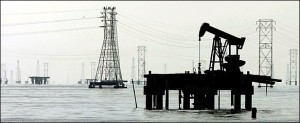
The collapse in crude oil prices has spurred economic growth in nations across the globe in recent months, but oil-dependent Venezuela has not been able to cope with the downward trend and is strapped for cash to pay for domestic energy subsidies. With the economy contracting, small Caribbean nations who have been reliant on Venezuelan oil to fuel their own economies are in a similarly bleak situation, where oil importing costs have risen dramatically to compensate for the subsidies which Venezuela can no longer afford to provide.
Cheap oil has discouraged Petrocaribe nations – those under the financing deal with Venezuela – to diversify their energy reliance away from oil alone, which Venezuela once provided en masse and discounted. The result has been a dependence on “outdated fuel oil generators to provide the majority of [the Caribbean nations’] electricity,” which has placed these already-struggling nations into further economic uncertainty, according to Scotiabank analyst Rory Johnston.
Venezuela is therefore doubly in trouble: debts from Caribbean nations unable to pay import costs and upfront expenses are beginning to mount, and refinancing by the Venezuelan government is deemed impossible as a result. With the future of Venezuelan oil in jeopardy, Vice President Joe Biden invited Petrocaribe nations to an energy summit in Washington to discuss the situation at hand.
This summit did not sit well with Venezuelan President Nicolas Maduro however, who claimed Biden held the meeting to provoke an overthrow of his government. “President Maduro’s accusations are patently false and are clearly part of an effort to distract from the concerning situation in Venezuela, which includes repeated violations of freedom of speech, assembly and due process,” Biden’s office said in a statement.
With no rebound in oil prices in sight, Venezuela’s future looks bleak, the risk of deep cutbacks to domestic education, food and housing subsidies looming, while Caribbean nations scramble to find energy security.

Recent Comments